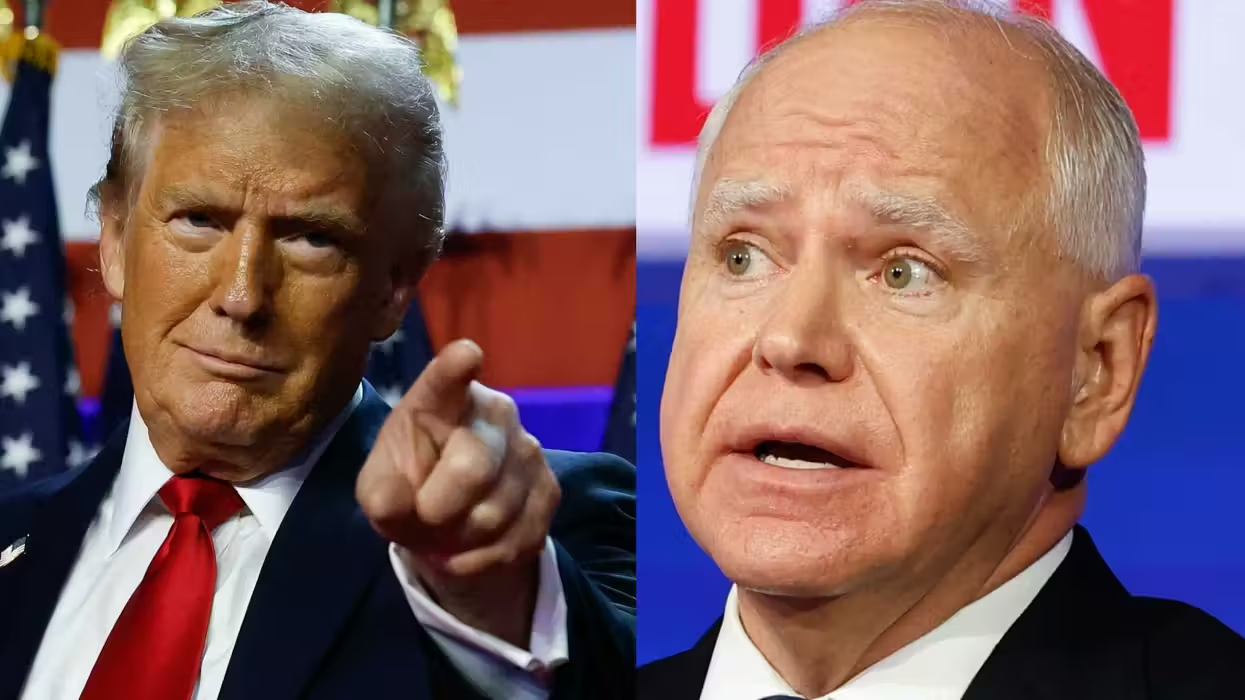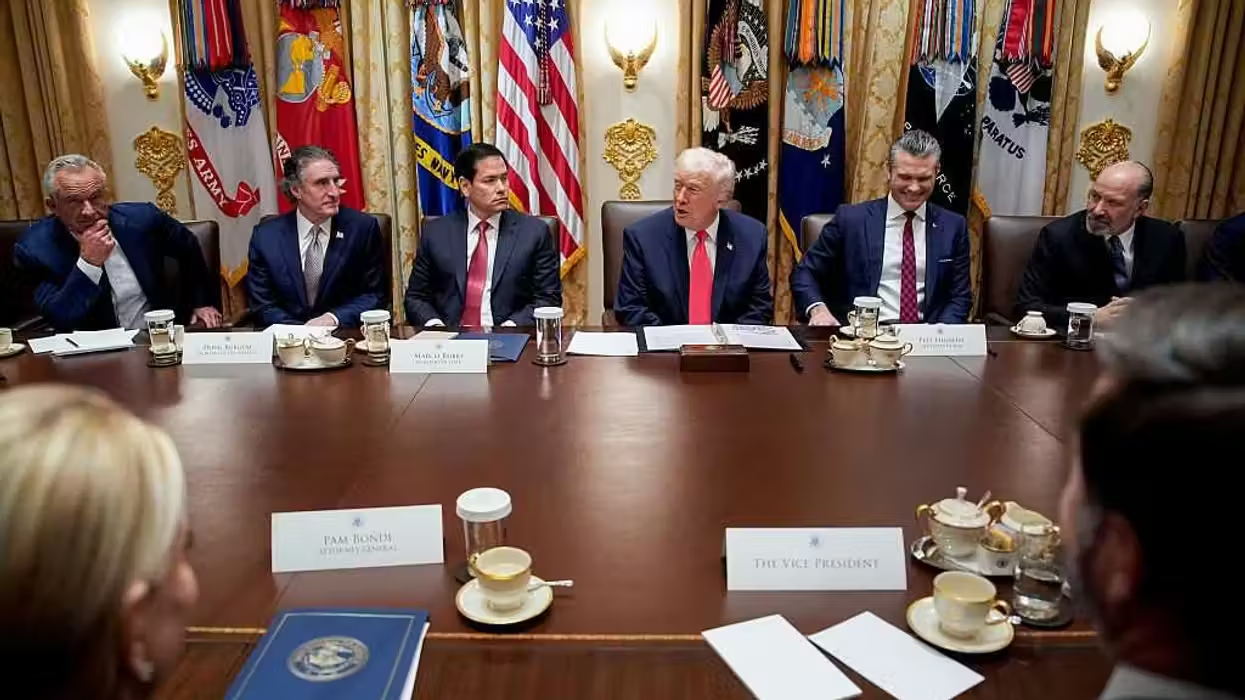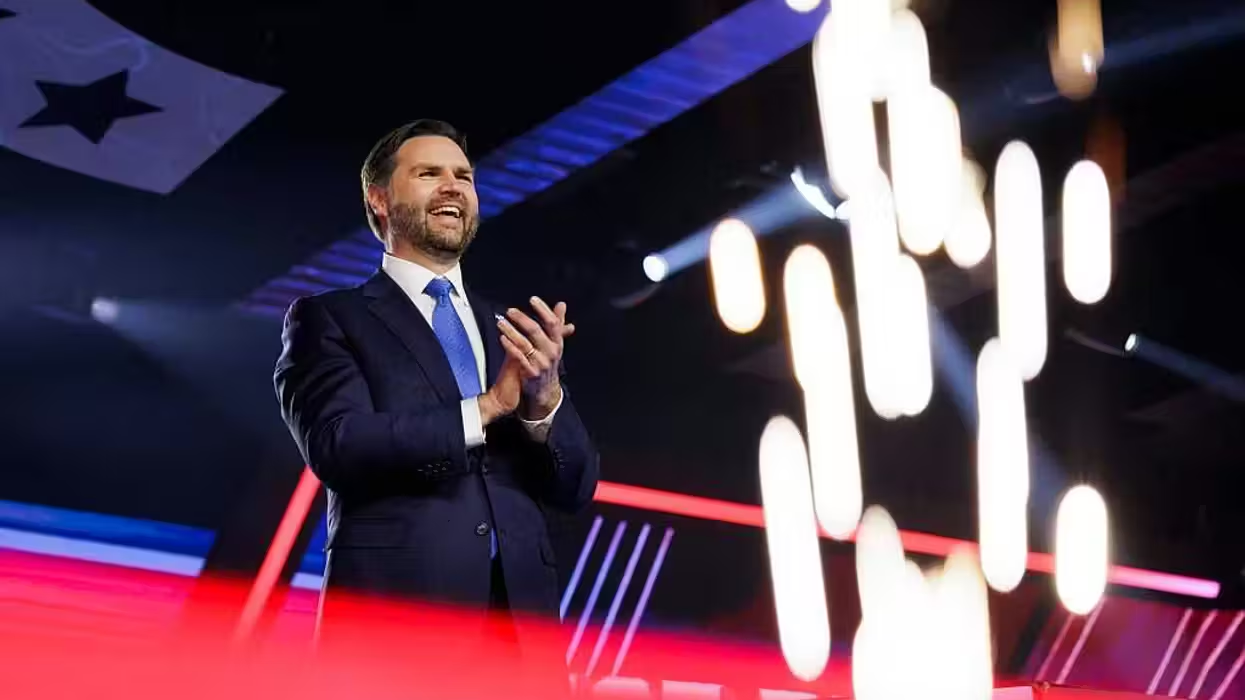
© 2025 Blaze Media LLC. All rights reserved.
Once again, politics, not the safety of the nation, is the primary factor at work.
President Obama has dismissed and derided the former military and intelligence officers who believe his administration passed out sensitive national security information for partisan gain. In a press conference yesterday, he said of the Special Operations OPSEC Education Fund and similar groups—“I don’t take these folks too seriously.”
Unsurprisingly, the White House has been quick to attack the men behind these accusations instead of explaining to the American people that this administration has not leveraged defense secrets for positive press reports. The best Obama was able to muster in his defense yesterday was “this kind of stuff springs up before election time.”
Of course, this does not adequately address accusations of leaks that many believe could amount to treason. While the specific source of the leaks remains in question, as a former intelligence officer, I see why so many informed observers, including the OPSEC whistleblowers, smell something rotten at 1600 Pennsylvania Avenue. Let’s press into the facts of the case.
From the start of the controversy, the news articles that leaked the information claimed that their sources were members of “Obama’s national security team.” That would seem the drain the pool of possible leakers rather quickly, but alas—no progress has been made on the White House-approved investigation.
Even without that massive clue, there is plenty of circumstantial evidence pointing to the White House as the source. The leaks are obviously political because they are positive. Leaks usually hurt administrations, but not these leaks. Whoever told the press about these sensitive national security matters had very high-level access and used it to lionize the President. From the Bin Laden raid details to the President’s so-called “Kill List,” the leaks bolstered the perception that Obama had transformed into a hawk.
In response to the OPSEC group's accusations, media outlets often tout that Obama’s Department of Justice has brought more Espionage Act prosecutions—six and counting—than every President before him combined. They cite this to further a narrative that Obama takes leaking seriously, but that’s a misreading. The prosecutions have everything to do with appearances for Obama and very little to do with national security.
Leaks can create major political headaches, as seen during the Bush years. To blunt this liability, the Obama administration established an early precedent: leak, and Attorney General Holder’s DOJ will ruin your life. This approach ensnared a range of offenders—from legitimately dangerous offenses to a case against former NSA analyst Thomas Drake that completely fell apart in court.
Thus the Obama administration has maintained a two-track enforcement approach to leakers. Senior political operatives seem to get away with them; working-level national security professionals cower in fear of DOJ’s wrath.
Instead of pulling clearances and firing alleged leakers, Obama’s DOJ jumped right to felony charges in these instances. Regardless of the trial outcomes, the message to all who have classified access and a political disagreement with Obama was heard loud and clear.
And what liberals claimed was laudable behavior under President Bush—leaking-- was now treasonous under Obama. For a President who ran on a promise of transparency, this was a particularly craven abandonment of previously espoused principle.
Contrast the draconian enforcement approach to working-level intelligence employees with the zero arrests that have been made in relation to the major national security disclosures that set off the current furor. Despite the reckless revelation of sources and methods in the recent leaks, it is a near certainty that no senior White House officials will face charges or even lose their security clearance because of them.
Instead, the White House will make the Pentagon and intelligence agencies turn the screws even tighter on civil servants who had nothing to do with these disclosures. To appear tough, the executive branch has empowered prosecutors and internal bureaucrats to ferret out leakers that do not exist. Countless patriotic Americans who protect classified information every day will be harassed and slowed in their work so that connected political advisors and special assistants in the White House can continue to tell whatever they want to whomever they want.
Of course, all of this would have been avoided if President Obama had decided to release the information officially, as is his purview as Commander-in-Chief. Instead, somebody with seemingly unrestricted classified access gave the stories behind closed doors to favored media mouthpieces. Had President Obama declassified the information himself on record, his administration could also be held to account for the intelligence fallout afterwards. Thus the current White House policy of disclose-and-deny gives the administration de facto credit without suffering any blowback.
Once again, politics, not the safety of the nation, is the primary factor at work.
President Obama’s national security record is unlikely to determine the election this fall. But to groups like OPSEC Education Fund and countless national security professionals still working in the shadows, the spate of leaks plays into a broader narrative of a solipsistic President and administration that appear to value reelection above all else.
Though we will likely never find out the source of the leaks, President Obama appears more upset about them as a political liability than a possible threat to our national security. That alone is cause for concern.
Want to leave a tip?
We answer to you. Help keep our content free of advertisers and big tech censorship by leaving a tip today.
Want to join the conversation?
Already a subscriber?
more stories
Sign up for the Blaze newsletter
By signing up, you agree to our Privacy Policy and Terms of Use, and agree to receive content that may sometimes include advertisements. You may opt out at any time.
Related Content
© 2025 Blaze Media LLC. All rights reserved.
Get the stories that matter most delivered directly to your inbox.
By signing up, you agree to our Privacy Policy and Terms of Use, and agree to receive content that may sometimes include advertisements. You may opt out at any time.






